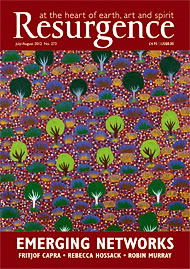Whether at the Menin Gate in Ypres, at the Arlington Cemetery in Washington, or in a quiet corner of some English country churchyard, there are surely few more sobering experiences than to stand mindfully before a war memorial and read the names of the dead. For in those silently accusatory lists are made manifest both the pathos and the folly of warfare, its legacy of waste and grief, its persistently ignored admonitions. “Why”, they seem to ask, “do we keep doing this to ourselves?”
The opening pages of Alice Oswald’s magnificent poem Memorial consist of such a list, a stark roll-call of men who went to war at Troy some 3,000 years ago and there encountered the death that “was already walking to meet them”. All the names are drawn from Homer, some of them famous still, others more obscure, but as each stirring elegy in this poem makes plain, each of them had some distinguishing characteristic – a gift with horses, the way he wore his hair – and each was at one time dear to his family, his comrades and the community from which he came.
Now, through a disturbing and compassionate act of the imagination, Alice Oswald has exhumed these men from the ashes to which their bodies were consigned, and the living spirit of her verse has given them – even those of whom nothing is known but the name – a newly recollected lease on life.
Yet there is nothing remotely sentimental here. The brutal facts of each death are recorded unflinchingly and without indulgence, so that you can see, for example, the “hole in the helmet, just under the ridge | Where the point of the blade passed through | And stuck in his forehead | Letting the darkness leak down over his eyes”. And each brief, often shocking account is counterpointed with an antiphonal sequence of similes drawn from the natural world, which rolls through the poem like the impersonal surge of life itself.
The first of these, with the movement of its lines enacting the interrelated waves of energy passing through wind, through water and across the land, “wishing and searching | Nothing to be found”, sounds this deep bass note of the poem. And each of the following pattern of images is so vivid in its impact on the senses that the immediate desire is to reread it – a desire instantly gratified by the text’s insistent repetition of the lines. The effect is liturgical, refunding each brief ‘flash of flesh’ back into the ever-changing, always unchanging embrace of the natural world. The poem itself ends in a dying fall of such poignantly observed similes until it reaches a breathless echoing moment
like when god throws a star
And everyone looks up
To see that whip of sparks
And then it’s gone.
Alice Oswald is a poet who is also a classics scholar, and what she has achieved here is the return to vital currency of the Greek concept (one might more truly say the experience) of enargeia, which might otherwise have been confined to merely academic interest. In her brief foreword to the poem, she translates this as “bright unbearable reality”. It’s the word used “when gods come to earth not in disguise but as themselves” – those gods which demand not belief but recognition (and, as Roberto Calasso insists, “a life in which the gods are not invited isn’t worth living”). It’s a word that opens our gaze on the impersonal archetypal world that is the elemental substrate of our being. It’s a word that, in its capacity to hold together both the luminosity of life and its essentially tragic nature, reveals the deep ground of all true poetry.
The lines of Homer, Shakespeare and Blake arose out of that ground; in our own time it was made manifest in the work of Ted Hughes; and now here again in the precision of Alice Oswald’s words. For though her love for Homer’s great poem is evident throughout Memorial, this poem is far more than what some reviewers called a ‘filleting’ of the Iliad. It exists sui generis as a powerful contribution to the enduring stock of poetry that has sounded out across three millennia from the unforgettable tragedy of Europe’s first great war.







